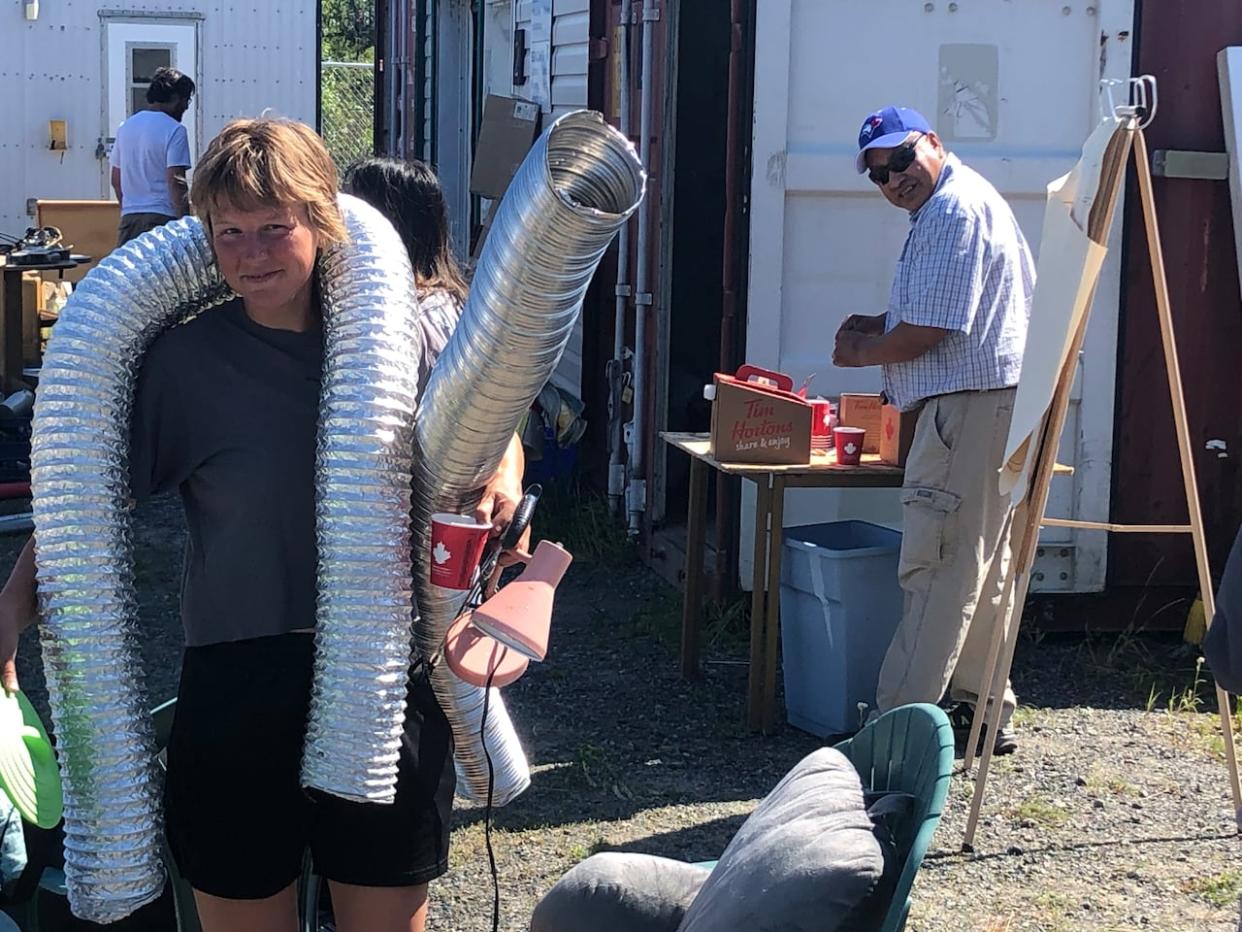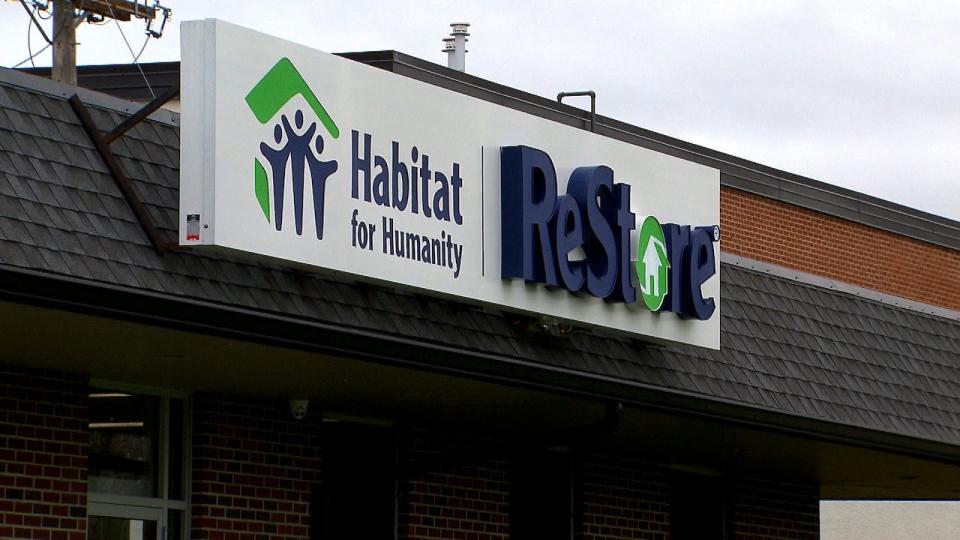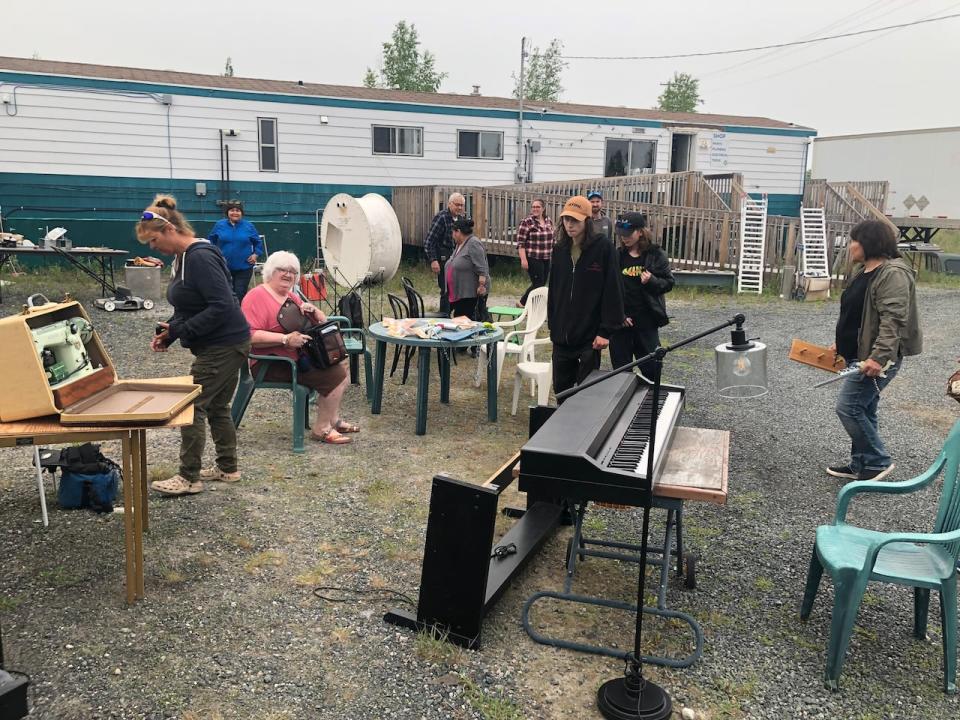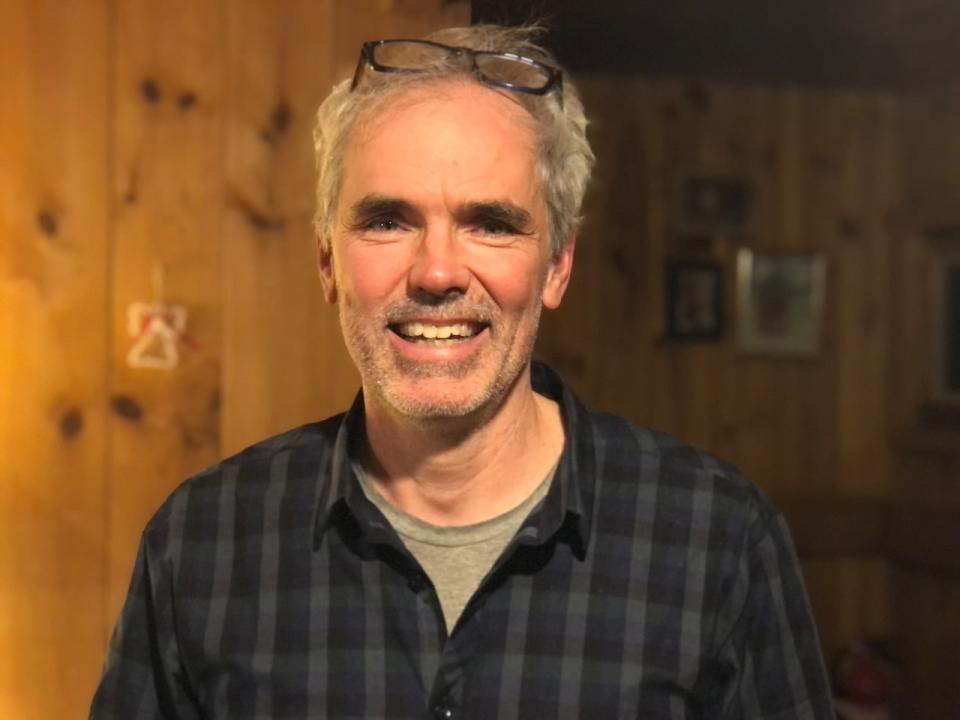Yellowknifer who kept ReStore afloat says closure this year is 'awful timing'

Power tools, heaps of nails, and old seats from the Capitol Theatre — if you were a scrappy builder or part of Yellowknife's salvaging community, Habitat for Humanity Northwest Territories' ReStore was the place to be on a sunny Saturday.
"It's just this constant kind of bazaar of dealing and wheeling goods," said Spencer Tracy who, for two summers, dedicated his Thursdays and Saturdays to being a part-time employee at the seasonal shop. "I'm surprised, as a community, that we cannot somehow save it."
Habitat for Humanity Northwest Territories has decided to shut down the ReStore because it's hard to staff. Its executive director, Alayna Ward, said the board made the decision at a meeting in May.
Habitat for Humanity is a non-profit organization that helps build and improve homes. Ward said the local chapter wasn't building as many homes when the ReStore opened seven years ago, but now — with funding from Canada Mortgage and Housing Corporation — it's building two per year in the N.W.T. It's a challenge to manage those builds and the store with just 1.5 staff, she said.
"So we really decided to focus our efforts on the home builds," she said.
There are ReStores across the country. Habitat for Humanity says they take in a "constantly changing inventory" of donated merchandise and sell it for a fraction of the retail price. The materials can be used to build, rehabilitate and repair homes.

A Habitat for Humanity ReStore in Winnipeg. There are ReStores across the country, open year-round and with 'fairly high' profit margins, according to the executive director of Habitat for Humanity Northwest Territories. (John Einarson/CBC)
It's a mission that Tracy is passionate about, and he's sad to be saying goodbye.
"The timing, I think, is awful," said Tracy. "With inflation being so high, lumber is expensive, furniture is expensive … I think if there's ever been a good time to kind of try and repurpose and redistribute and reuse goods, I think it's now.
"I would love to see it stay open."
Ward said ReStores elsewhere in Canada operate with "fairly high" profit margins. What makes them different, she said, is they are able to operate year-round, often have premium retail spaces, and exist in bigger markets where they're able to get more donations. The ReStore in Calgary, for example, takes in donations from more than a dozen home building and supply stores, she said.
Where the goods would go
Shannon Jennings, a Yellowknife resident, said she'd visit the ReStore almost every week during the summer. She said she was "very disappointed" it was closing.
"There was always stuff coming in and I have a rotating list of things I'm looking for, so it was always worth it to go and see what's there."
Jennings said half the furniture in her home comes from the ReStore, and she was in the midst of collecting a suite of power tools as well for home projects and repairs. A circular saw is one her favourite finds.
"It's kind of the basis for all my projects. I've salvaged lots of decks from the dump and from salvagers [the popular salvaging Facebook group] and around town, but none of that is good without a framing saw."

People checking out the wares at the ReStore next to Yellowknife's dump. The site had a couple of trailers and sea cans with a wide range of goods for sale. (Spencer Tracy)
Jennings hopes materials that used to go to the ReStore will continue to circulate throughout Yellowknife. Tracy said donated goods would often travel much further, to N.W.T. communities too.
He remembers a man from Colville Lake who bought six, 50-pound boxes of nails with plans to fly them home. Tracy was surprised, but remembers the customer saying it would be worth it: each box cost $10 at the ReStore, but would have cost $200 in his community.
Tracy said he had customers from Whati, Tsiigehtchic, and Behchoko too.
"It's going to be sad to have to tell them this place, we're going to be open for two weekends maximum this summer and then it's closing permanently."
'It's quite a bit of work'
Tracy's situation is an example of why the ReStore is hard to staff.
The Yellowknife teacher stepped up to help a couple of years ago, but found it wasn't feasible as a part-time job. He's since decided to step away.
"My wife works during the week, so weekends are valuable family time for us," he said. "The ReStore was kind of cutting into that."
Though his kids are ribbing him that the closure is his fault, there's another way of looking at it: that Tracy's involvement kept the operation going an extra two years.

Spencer Tracy, who's helped keep the store alive in recent years, believes it fills a need in the community — though he also acknowledged it didn't make a lot of money. (Luke Carroll/CBC)
He agreed to work at the ReStore when, after contacting Habitat for Humanity multiple times about donations he wanted to make, he was told the store wasn't opening. It was on the verge of closure. That was back in 2022.
"Within a few days I had the keys to the ReStore and I was kind of given quite a long leash to open it up and get it started," he said.
Though he believes it fills a need in the community, he also acknowledged it didn't make a lot of money.
"It's quite a bit of work."
Tracy has been trying to find a person or an organization to take over the ReStore, regardless. But he's come up empty-handed so far.
He's asked the City of Yellowknife to keep some infrastructure on site, two sea cans and the fence at least, so someone could take it over again in a few years time. If it's entirely decommissioned, he fears it'll be much more difficult to bring back.
"Perhaps some organization will step forward saying, you know what, we do really need to work on our waste reduction."
Tracy said the ReStore will be open for one more Saturday, maybe two, this summer. He'll open the gates and try to sell what's left of the inventory on June 14.
